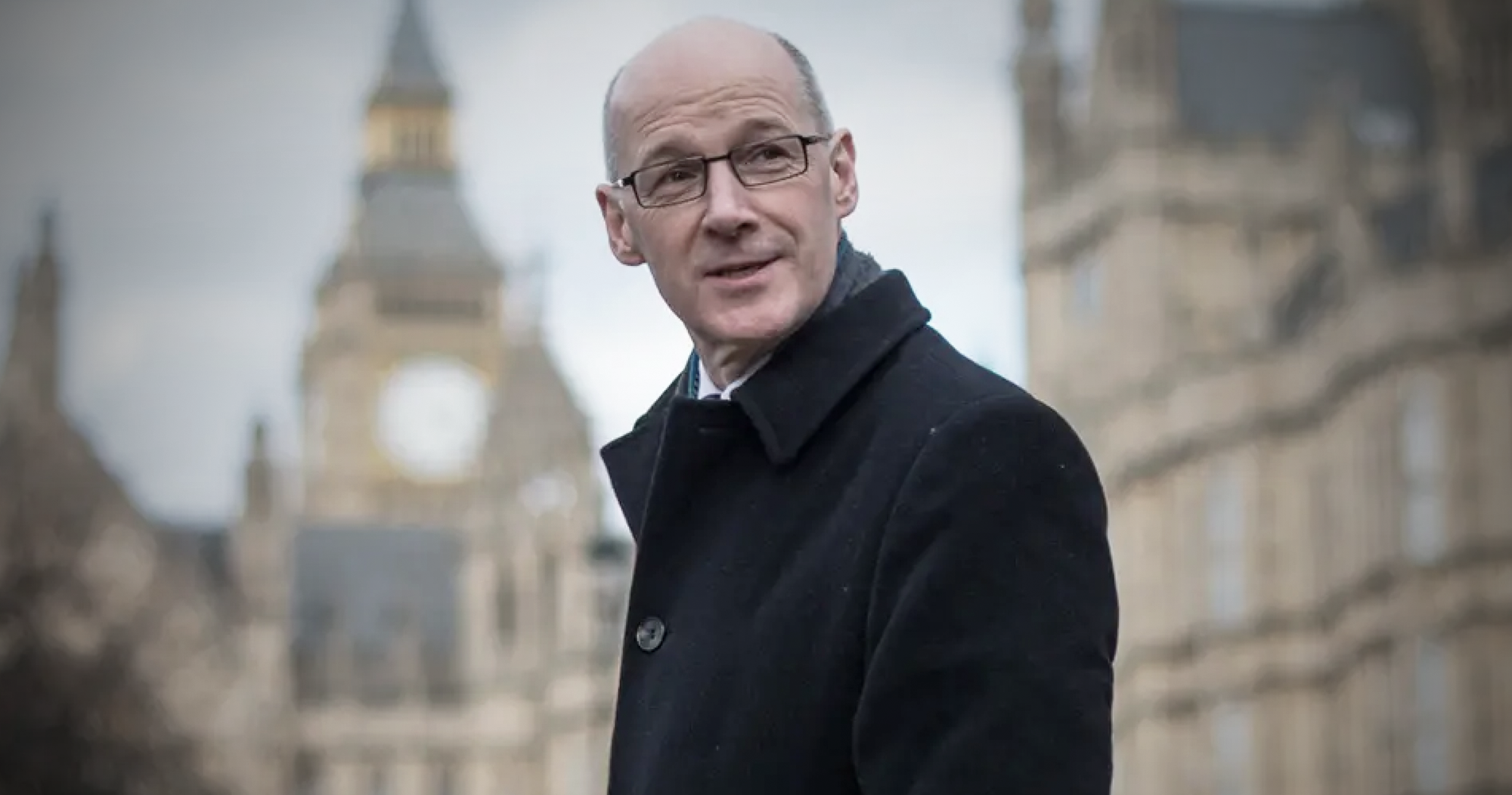Henry Stannard
Henry Stannard works for the think tank Our Scottish Future on creating a positive case for devolution and co-operation within the UK.
It is now almost 6 months since the SNP secured a third term in government, meaning that by the time of the next election they will have governed Scotland for 70% of the time period since devolution. In the absence of any signature policies – including any real progress on Independence – a growing ennui has spread across Scotland’s political classes.
Two interventions in particular stand out from the last week – both from members of what might one day be called the Greatest Generation of Scottish politicians who campaigned for and secured devolution then were the first to be elected to Holyrood in 1999. What was common across both interventions was a sense of frustration, of potential squandered and momentum lost. And most of all of doubt in Devolution as the continued settled will of the Scottish People.
In a soulful interview with Holyrood Magazine, former first minister Jack McConnell found himself hesitating when asked the question whether as an enthusiastic advocate of devolution he believes Scotland is a better country in 2021 than it was pre-1999, going on to say that “right now it just feels that we are stuck in a situation where we’re not sure how we improve things anymore”. Meanwhile in a speech to the Institute for Government, John Swinney – who was sure to lay out is devolutionary credentials in full – painted a gloomy picture of Scotland’s powers of innovation being clawed back by Brexit-inspired ‘Muscular Unionism’ and went on to argue that the development of the Scottish parliament over the last twenty years wasn’t satisfying “the will of the people of Scotland who want to be independent.”
Mr McConnell and Mr Swinney are right. As tough a message as it is for supporters of devolution – and ScotlandCan was literally founded to support it – the track record of the status quo over the last decade is indefensible. For all the powers Scotland has, for all the good that the devolved Scottish Parliament nominally can do, the public record is bordering on shameful in all the areas that matter most and that once were a source of pride for every Scot.
In the decade before COVID hit Scotland, schools in the epicentre of the Northern Enlightenment fell in international league tables, with the attainment gap between the richest and poorest pupils barely narrowing since it was taken on as the First Minister’s top priority. Healthy life expectancy was in decline in the birthplace of modern medicine. A country that prides itself in its history of delivering social justice saw its poverty rate grow, and the real costs of poverty in terms of life outcomes worsen – exemplified by a rise in deaths from drug overdoses not seen anywhere else in Europe. The home of a quarter of Europe’s wind energy potential has seen no meaningful reduction in carbon emissions since 2016. The most industrious nation in the world a century ago has seen growth fall to around 1% a year, and where once the invisible hand drove efficiency and growth now there are well-meaning quangocrats and civil servants staggering about with bags good money to throw after bad people, bad businesses, and bad ideas.
So when the performance of the status quo has been so utterly lacking, it is no surprise that Scots – as Mr Swinney says – do show signs of giving up on devolution. An Ashcroft poll conducted before the Scottish election found that roughly 2/3 of Independence supporters and just over half of all Scots believed some version of the statement The Scottish Government doesn’t have the power to change things for the better in Scotland, as a lot of control is still with the UK parliament. As much as Unionists might want to engage in civics lectures about who has what power, the lived experience of a nation in stasis does tend to speak louder than any argument that starts with ‘well actually’, no matter how factually correct.
The question that should be asked then is this: ‘what change can get the most positive results for the people of Scotland, most quickly?’ For every year that goes by with the status quo untouched, 12,000 children will be born into poverty, 30,000 people will be diagnosed with cancer with an NHS that is creaking and at risk of falling over, and 50,000 young people will leave an education system that is increasingly failing to prepare them for the modern global economy. We really cannot afford to delay here.
There are many who say that the problem is that Scotland’s lost decade is a result of the failure of the Scottish Government to have enough powers to make positive change inside a hostile and incompetently run UK. This is Mr Swinney’s argument – that Westminster is increasingly holding back the Scottish people and the Scottish government is powerless to stop it. This is also the default setting of the Greens – merrily abandoning manifesto commitments on fully devolved matters such as waste incineration and blaming Brexit for delays in setting up a bottle deposit scheme in Scotland. They would argue that it is only having achieved autonomy unbound that the Scottish Parliament can get working again.
Mr Swinney would not be wrong in claiming popular support for his case: we know that Scottish voters by a significant majority feel better represented at Holyrood than at Westminster and that the offer of ‘more powers’ (whatever that might be) to Scotland is supported by far more than the 50% or so that Independence gets.
But in truth this is a deeply nihilistic argument. Take the spin away and what remains is a self-reinforcing cycle of failure and grievance: of promises made and not kept, and of disappointments being transformed into arguments to give more power to same politicians who are most responsible for failure. Put more bluntly, a learned powerlessness has become a comfort blanket for Scottish politicians when comparing the relatively modest achievements of the most decade of devolution against the trip-off-the-tongue list of new ideas implemented during the first.
And so it is perhaps no surprise that once one moves away from the narrow constitutional polling that Scotland seems to lead the world in towards the more normal polling of priorities a very different picture emerges. Whilst there is pride in Scotland’s institutions, what people really want is for them to work.
Our Scottish Future’s ‘Morning After Poll’ after the Scottish election found that voters wanted their government to focus on (in order): ensuring that NHS Scotland catches up with appointments and procedures missed during COVID, reducing the spread of COVID and managing the vaccine rollout, protecting and creating jobs in Scotland, and ensuring that school pupils and university students catch up with learning missed during COVID. Out of a list of 11 potential immediate priorities constitutional change came 8th overall and 5th with SNP voters. More recently, an Our Scottish Future poll of 10-year priorities found that giving Scots a world-leading health service, every child the best education possible, and old people dignity in retirement were all seen as more important priorities than constitutional change.
In terms of the best way to get those priorities done again the polling is overwhelming. Voters want their governments to co-operate in their best interests – by a margin of 73% to 7%. By a margin of 54% to 23% they do not think that cooperation happens well today, and they blame both governments equally for it (and not on Yes/No lines). The constitutional change that voters are united in wanting to see – as boring an unconfrontational as it might be to Mr Swinney – is devolution evolved, where rather than ‘devolve and forget’ the UK government gives the Scottish government real say in central decision making, and use of UK institutions to deliver devolved policy more quickly.
It is easy to forget that in the context of 300 years of Union, devolution is a very new idea. We have clearly not got it right yet. On the Westminster side, New Labour’s devolve and forget has led to justified claims of Scotland being forgotten by the centre. On the Holyrood side – as observed most eloquently by Mr McConnell – the failure of opposition parties to offer big, new interesting ideas over the last decade, instead focussing their time on the opposing the SNP’s constitutional position and pointing out flaws in their track record, has further contributed to the ossification of debate.
But things can change – recent months have seen the proponents of Muscular Unionism cast out of Number 10, the opportunity to co-operate better is there if politicians can be brave enough to grasp it. In the meantime in Scotland it is incumbent on every politician to think deeply about what can be done with what we have today, not just what could be done tomorrow. We at ScotlandCan will continue to do our part and will publish ideas on how to make positive change in a devolved Scotland from right across the political spectrum.






